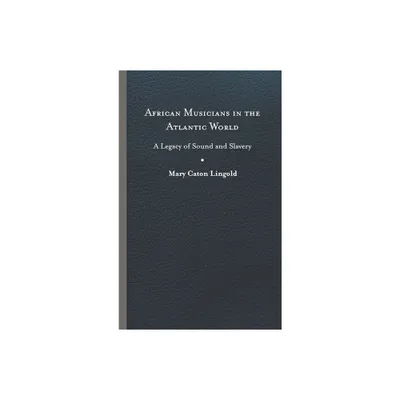Home
the History of Disruption: Social Struggle Atlantic World
Loading Inventory...
Barnes and Noble
the History of Disruption: Social Struggle Atlantic World
Current price: $29.95


Barnes and Noble
the History of Disruption: Social Struggle Atlantic World
Current price: $29.95
Loading Inventory...
Size: Paperback
*Product Information may vary - to confirm product availability, pricing, and additional information please contact Barnes and Noble
Challenging our understanding of social struggles as
movements
, Mehmet Dösemeci traces a 300-year counter-history of struggle predicated on
disruption
Why do we think of social struggles as movements? Have struggles been practiced otherwise, not as motion but as interruption, occupation, disturbance, arrest? Looking at three hundred years of Atlantic social struggle kinetically, Mehmet Dösemeci questions the axiomatic association that academics and activists have made between modern social struggles and the category of movement. Dösemeci argues that this movement politics has privileged some forms of historical struggle while obscuring others and, perhaps more damningly, reveals the complicity of social movements in the very forces they oppose.
Dösemeci’s story begins with the eighteenth-century establishment of a transatlantic regime of movement that coerced goods and bodies into violent and ceaseless motion. He then details the long history of resistance to this regime, interweaving disparate social struggles such as food riots, Caribbean maroon communities, Atlantic pirates, secret societies and syndicalism, the student New Left, Black Power, radical feminism, Operaismo, and the Zapatistas into a history of politics as disruption. Dösemeci convincingly argues that this history is key to understanding the resurgence of disruptive politics in the twenty-first century and offers valuable guidance for future struggles seeking to overturn an ever-intensifying regime of movement.
movements
, Mehmet Dösemeci traces a 300-year counter-history of struggle predicated on
disruption
Why do we think of social struggles as movements? Have struggles been practiced otherwise, not as motion but as interruption, occupation, disturbance, arrest? Looking at three hundred years of Atlantic social struggle kinetically, Mehmet Dösemeci questions the axiomatic association that academics and activists have made between modern social struggles and the category of movement. Dösemeci argues that this movement politics has privileged some forms of historical struggle while obscuring others and, perhaps more damningly, reveals the complicity of social movements in the very forces they oppose.
Dösemeci’s story begins with the eighteenth-century establishment of a transatlantic regime of movement that coerced goods and bodies into violent and ceaseless motion. He then details the long history of resistance to this regime, interweaving disparate social struggles such as food riots, Caribbean maroon communities, Atlantic pirates, secret societies and syndicalism, the student New Left, Black Power, radical feminism, Operaismo, and the Zapatistas into a history of politics as disruption. Dösemeci convincingly argues that this history is key to understanding the resurgence of disruptive politics in the twenty-first century and offers valuable guidance for future struggles seeking to overturn an ever-intensifying regime of movement.

















